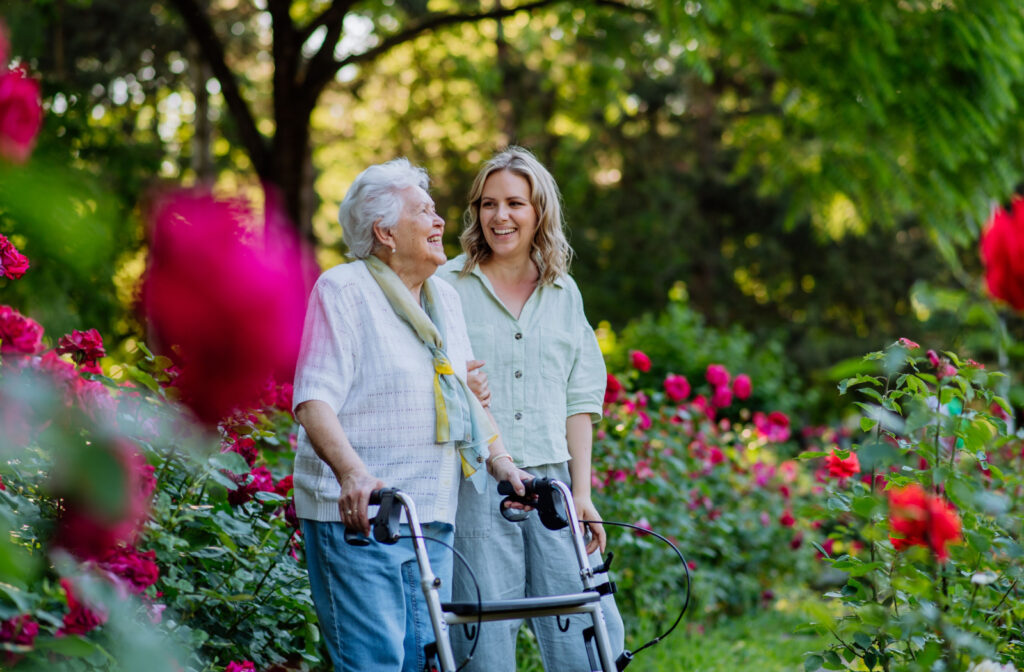Welcoming the later years with grace and vitality is a journey that encompasses comprehensive care for both the mind and body. At The Lodge at Historic Lewes, we understand the profound impact of therapeutic activities on the lives of our elderly residents, particularly those with memory impairments.
These activities are not just pastimes; they are integral to our holistic care approach. They help in maintaining cognitive functions, improving physical health, and fostering emotional well-being. Engaging in these activities can lead to increased social interaction, reduced feelings of isolation, and a stronger sense of community among residents. This holistic engagement is crucial in promoting a sense of purpose and joy, making every day more meaningful for our residents.
Targeted Cognitive Activities for Memory Enhancement
The cognitive health of our older loved ones can be supported through a variety of stimulating activities:
Memory-Specific Games: Utilizing puzzles, memory-matching games, and brain teasers tailored to support cognitive function and memory recall.
Reminiscence Therapy: Engaging individuals in sharing personal stories and memories, aided by prompts like photographs and familiar objects from their past.
Music and Memory Program: Incorporating music therapy, where familiar songs and rhythms are used to stimulate memory and emotional connections.
Gentle Physical Activities for Overall Well-being: Even something as simple as a daily walk in the morning or after dinner can have profound effects not just on physical health, but also for improving moods.
Physical Wellness to Support Memory Care
All movement is good movement. Exercise does not always need to be vigorous, and in fact may not even be recommended depending on the individual’s health. Exercise can come in many different forms:
Adapted Exercise Classes: Low-impact exercises such as chair yoga and stretching, designed for varying mobility levels and focused on maintaining physical health.
Sensory Walks: Guided walks tailored to the sensory preferences and safety of the individual allows them to incorporate movement into their day while at the same time benefiting from connecting with nature and the outdoors.
Rhythm and Movement: Simple dance and movement activities, encouraging physical activity in a fun, engaging way that is accessible for individuals with various ranges of motion.
Holistic Therapies to Support a Well-Rounded Approach
Aromatherapy for Cognitive Clarity: Utilizing specific scents known to aid in memory and cognitive function.
Tactile Stimulation: Activities involving various textures and materials to stimulate touch, often linked with memory and comfort.
Mindfulness Practices: Guided sessions focusing on present-moment awareness, aiding in anxiety reduction and emotional regulation. Free sessions can be found on the internet or with phone apps that allow individuals to enjoy a few minutes of mindfulness whenever they want. It could be first thing in the morning before they start their day, or maybe they prefer to wind down with a few minutes of meditation before bed.
These activities help to stimulate the brain in a gentle, positive way and help support overall well-being.
Optimizing Nutrition for Enhanced Elderly Care
Nutrition plays a pivotal role in the overall health and well-being of the elderly, especially those with memory impairments. A well-balanced diet, rich in essential nutrients, can have a profound impact on both physical health and cognitive function.
- Brain-Healthy Diets: Incorporating foods rich in omega-3 fatty acids, antioxidants, and vitamins is key. These nutrients, found in foods like fish, nuts, berries, and leafy greens, support brain health and may slow cognitive decline.
- Hydration Focus: Proper hydration is crucial for maintaining cognitive function and overall health. Elderly individuals are often at risk of dehydration, which can impact physical health and cognitive abilities. Offering a variety of hydration options, such as water, herbal teas, and hydrating fruits and vegetables, ensures that hydration needs are met in an appealing way.
- Adapting to Changing Dietary Needs: As we age, our dietary requirements and preferences may change. Elderly care involves adapting meal plans to accommodate these changes, ensuring meals are not only nutritious but also cater to specific health conditions and dietary restrictions.
- Mindful Meal Planning: Planning meals that are both nutrient-dense and easy to eat is essential, especially for those with memory issues or reduced physical abilities. This might involve softer foods or meals that are easier to handle, ensuring that eating remains a pleasure rather than a challenge.
- Encouraging Social Dining: Meal times are not just for nutrition; they are also opportunities for social interaction. Encouraging communal dining or family-style meals can enhance the overall dining experience, promoting social engagement and a sense of community.
Focusing on these aspects of nutrition can significantly contribute to the physical and cognitive well-being of residents. Proper nutrition, combined with therapeutic activities, forms a comprehensive approach to elderly care, ensuring a higher quality of life.
Join Us at The Lodge at Historic Lewes for Compassionate Memory Care
Discover the difference our specialized memory care program can make in the lives of your loved ones. At The Lodge at Historic Lewes, we are dedicated to providing a nurturing environment that caters to both the mind and body, ensuring a holistic approach to care. We warmly invite you to see firsthand the positive impact of our tailored activities, thoughtful community design, and compassionate care.
Contact us today to schedule a visit and explore how we can be a part of your loved one’s journey to a fulfilling and dignified life in their senior years.




